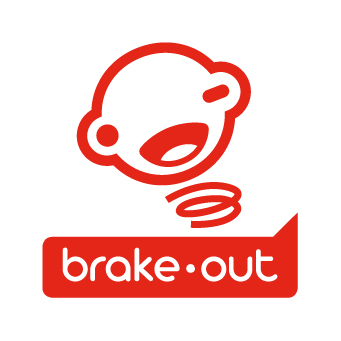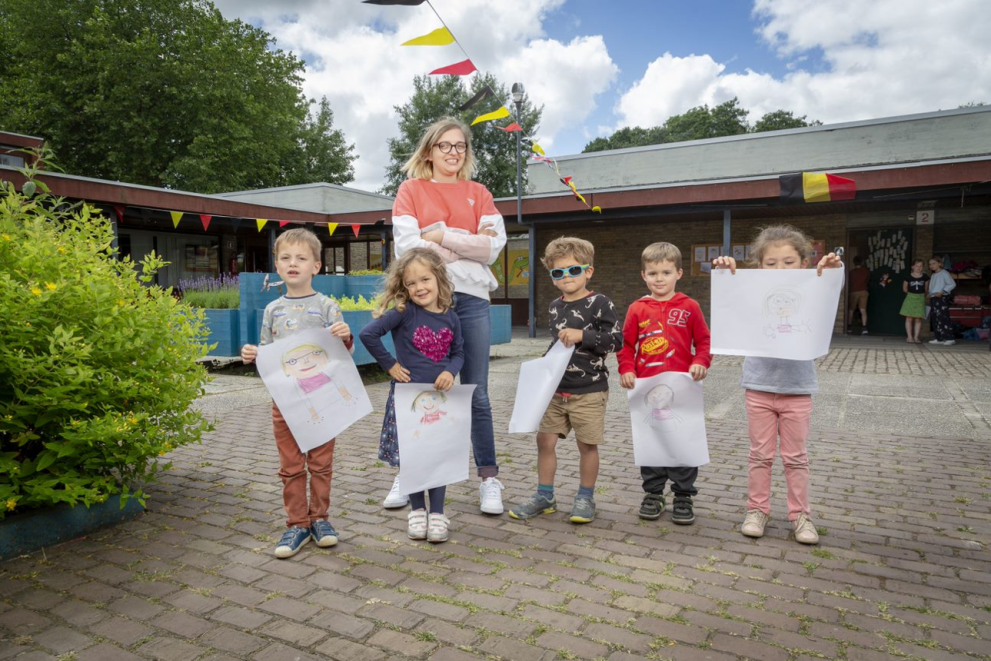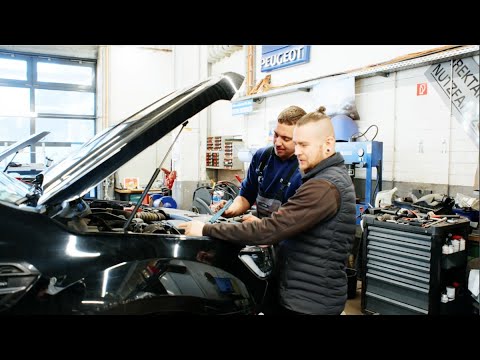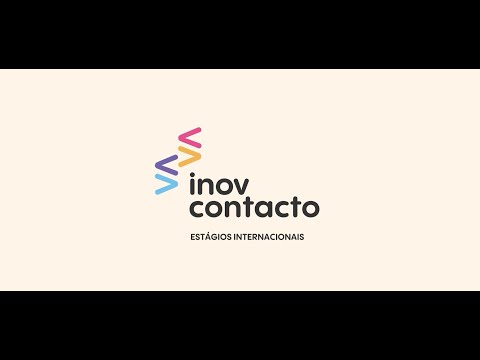
Aline, Brake-Outer
Brake-Out is a transformative educational program designed for young adults with cognitive support needs, such as intellectual disabilities and Autism Spectrum Disorder (ASS). Launched in Flanders, Belgium, Brake-Out empowers participants to discover and develop their talents, breaking free from systems that limit their potential.
Together with peers, coaches and supporters, we start looking for your talents and interests. We take specific steps to help you realise your dream for the future. Brake-Out helps you become more self-confident, pushes your boundaries and expands your network.
Problem addressed

Young people with disabilities are not given the opportunity to develop their full potential. They grow up in systems that isolate them from their peers and keep them small.
Flanders leads with most students in specialized education in Europe.
Some young people repeat their last year of secondary school 3 to 8 times because they have no prospect of taking the next step in their lives. This leads to school fatigue.
We see a lot of young people leaving school with drooping shoulders, they have low self-esteem, they think of themselves that they are not good at anything, have no desire for the future and low self-confidence. Deficit thinking in education is pernicious for all young people. But for young people with disabilities, deficit thinking is most disastrous. In the current systems, there is too much focus on the disability, the impairment and everything that is difficult. They are very much brought down by the “waterfall system". Did you know that young people with disabilities are decided at the age of 12 whether they can do a job later or not. Too often the expectations are very low and they are prepared for a life in a protected context (read facility) where the focus on care is high. Young people are thus reduced to objects of care, but no one becomes happy from being well cared for. Young people with disabilities also want to be meaningful and take on a visible role of importance in society.
The potential present in these young people is very much greater than what we see developed in current systems. Moreover, growing up in systems that segregate them leads to lifelong segregation.
However, the right to support and the right to an inclusive life are enshrined in the UN Convention on the Rights of Persons with Disabilities that Belgium signed in 2009. The UN Convention approaches disability from a human rights perspective. It strives for an inclusive society where people with disabilities can and are allowed to make their own choices as full citizens like everyone else. The convention marked a paradigm shift: people with disabilities are not merely objects of concern, they are citizens with a voice and rights. Yet every day, people with disabilities have to struggle with all kinds of (in)visible barriers. This leads to exclusion and discrimination.
Brake-Out addresses several critical social issues:
- Segregation and Low Expectations: a significant number of young people with disabilities are placed in specialized education, often leading to lifelong segregation and low self-esteem.
- Deficit-Based Approach: The current educational and support systems focus heavily on disabilities and limitations, rather than on the strengths and talents of individuals.
- Systemic Exclusion: Decisions about a child’s future capabilities are made as early as age 12, often relegating them to low-expectation tracks and preparing them for a life of dependency.
We believe that people with and without disability can live, learn and work together.
Brake-Out helps you build the life YOU want!
Innovative solution

3 years, 2 days a week
As a student, you participate in the activities of Brake-Out during 2 days a week. Together with 8 other young adults, you will gain a lot of new experiences. You will be given the chance to try out new things: volunteer work, creating new projects... One day a week we head out. The other day we stay at the course location. The learning programme consists of different modules, which revolve around life themes such as housing, relationships, leisure and work.
The Brake-Out approach is highly innovative for the following reasons :
Brake-Out is an innovation at the crossroads of the domains of welfare, education, work, culture and equal opportunities.
In the sector for people with intellectual disabilities and in education this is a radical innovation pur sang. While the whole sector is still in the old pre-personalized funding mindset, this is the only alternative that is fully committed to development and empowerment.
Many licensed care providers are focused on offering a lifelong total package in which the person with disabilities is viewed as an object of care. Brake-Out clearly positions itself as a passer-by and has as its transparent goal the development and pursuit of the trainee's dream for the future. The classic deficit thinking is abandoned and replaced by a thinking in which the talent of the young people is central. In time, we hope this will also inspire education to act from talent thinking. From lable-ism to able-ism!
Brake-Out is radically innovative in all respects: not only through this unique connection between different domains, but above all through the unique language-based approach and the pursuit of impact on both the young adult, their network and society as a whole. It is almost sad to see that our talent-focused approach, thinking from the person-as-a-person-with-talents instead of the person-with-defects is still so radically innovative. Parents suddenly see their children taking on meaningful roles and stepping into reciprocal relationships. Care behind walls is being replaced by an inclusive network idea that puts young people at the helm of their own lives.
Brake-Out offers several innovative solutions aimed at transforming the lives of young people with cognitive support needs and challenging systemic barriers.
Here are the key innovative solutions provided by Brake-Out:
- Strength-Based and Dual Learning Approach:
- Talent Discovery and Development: Brake-Out focuses on identifying and nurturing the individual talents and strengths of participants rather than emphasizing their disabilities and limitations.
- Integrated Learning Model: Combines theoretical education with practical experiences, such as job placements and volunteer work. This dual learning model helps participants gain real-world skills and confidence.
- Personalized and Holistic Support:
- Individualized Coaching: Each participant is paired with a coach who provides personalized guidance and support tailored to their unique needs and goals.
- Support Network Involvement: The program actively involves family members, friends, and other supporters to create a robust support network for the participants.
- Cross-Sectoral Integration:
- Interdisciplinary Collaboration: Operates at the intersection of welfare, education, work, culture, and equal opportunities, creating a comprehensive support system that goes beyond traditional care models.
- Partnerships with Various Organizations: Collaborates with educational institutions, businesses, and volunteer organizations to provide diverse opportunities and experiences for participants.
- Challenging the Deficit-Based Mindset:
- Positive Focus on Abilities: Moves away from the traditional deficit-focused approach and emphasizes what participants can do, their talents, and their potential contributions to society.
- From Label to Ability: Advocates for a shift in perspective from seeing individuals as "disabled" to recognizing their abilities and potential.
- Empowerment and Self-Determination:
- Encouraging Independence: Empowers participants to make their own choices and take control of their lives, fostering independence and self-determination.
- Future-Oriented: Helps participants develop a positive outlook on their future, with clear goals and aspirations.
- Impact Measurement and Scientific Validation:
- Evidence-Based Approach: Collaborates with academic institutions to measure the impact of the program scientifically, using validated instruments to track improvements in participants' quality of life and self-awareness.
- Data-Driven Adjustments: Uses the results of impact studies to continuously refine and improve the program.
- Systemic Change Advocacy:
- Educational Reform: Seeks to inspire changes in the educational system to adopt a more inclusive and talent-focused approach.
- Policy Influence: Aims to influence policy and decision-makers by providing evidence of the program's success and advocating for systemic changes that support inclusion and empowerment.
- Scalability and Replication:
- Expanding Reach: Successfully piloted in multiple locations in Flanders and plans to expand further, both within Belgium and internationally.
- Licensing Model: Developing a system to license and certify other organizations to replicate the Brake-Out model, ensuring consistent quality and impact across different contexts.
By implementing these innovative solutions, Brake-Out not only transforms the lives of young people with cognitive support needs but also aims to create a more inclusive and supportive society.
Key results and benefits
After 3 years Brake-Out
- youngsters have an appealing perspective for the future.
- they are stronger and more resilient
- they will be surrounded by a network that believes in them
- they take on a meaningful role

Brake-Out has demonstrated significant positive results and benefits for its participants, their families, and the broader society.
Belonging New contacts; being part of a group; feeling confidence in people: belonging is important for all of us. Our facilitators notice a clear evolution among the young people at Brake-Out. As the programme progresses, they take more account of each other's needs and support each other at times when stress is just around the corner. The network around our young people also notices this: they often put forward the social aspect as one of the most important benefits of the programme for the participants.
Personal mastery Being able to do something is one thing; realising and trusting that you can do it...that is something else. Our participants are often proud, not only of the new experiences they have lived through, but also of the way they did them. The result is often a renewed confidence: in themselves, but also in the capacity to try out new tasks or roles. So an extra load of daring, accompanied by a curiosity to discover talent in themselves as well as in the friends in the group. In turn, this results in a different view of one's own disability: it is experienced in a more nuanced way and is often more negotiable.
Being meaningful to others By exploring new contexts and trying out roles that match their talents, confidence grows. As a result, our trainees' focus shifts. They move from a self-image of someone who needs care to someone who has the capacity to contribute to other people's lives - inside and outside the group!
Self-determination Brake-Out is all about listening to what the participants care about. They take steps towards self-reflection and look at themselves in a detailed way - resulting in awareness. Having the courage to indicate what they want and expect - including, for example, in the family context- is a quasi-logical next step, which is of course taken together with members of the family and network.
Read more about the impact of Brake-Out in this Brochure : https://platform.parcours.cloud/volumes/konekt/PDF/Impactrapport-Brake-Out-eng.pdf
Here are the key results and benefits:
1. Personal Development of Participants:
- Increased Self-Confidence and Self-Esteem: Participants develop a stronger sense of self-worth and belief in their abilities, leading to greater confidence in pursuing their goals.
- Enhanced Skills and Competencies: Through practical experiences and dual learning, participants acquire valuable skills that are applicable in real-world settings, such as job placements and volunteer work.
- Positive Future Outlook: Participants gain a clearer sense of direction and optimism about their future, which motivates them to pursue their ambitions.
2. Social Integration and Inclusion:
- Meaningful Roles in Society: Participants engage in roles that contribute to their communities, fostering a sense of purpose and belonging.
- Reduced Segregation: By focusing on inclusion and participation in mainstream activities, Brake-Out helps reduce the isolation often experienced by individuals with cognitive support needs.
3. Support Network and Family Impact:
- Stronger Family Relationships: Families report improved relationships with participants, who become more self-aware and independent.
- Empowered Support Networks: Families, friends, and supporters become more engaged and supportive, contributing to the overall success and well-being of the participants.
4. Systemic and Societal Impact:
- Challenging Stereotypes: Brake-Out's success helps change societal perceptions of individuals with disabilities, showcasing their potential and capabilities.
- Educational Reform Advocacy: The program advocates for a shift in the educational system towards a more inclusive and talent-focused approach, influencing policy and practice.
5. Scientific Validation and Evidence-Based Impact:
- Validated Improvements: Collaborations with academic institutions, such as Hogeschool Gent and UGent, have scientifically validated the program's positive impact on participants' quality of life and self-awareness.
- Data-Driven Refinements: Continuous impact measurement and research allow Brake-Out to refine and enhance its program based on evidence and feedback.
6. Broader Community and Network Benefits:
- Increased Awareness and Support: Brake-Out raises awareness about the potential of individuals with cognitive support needs, garnering support from various sectors, including education, welfare, and employment.
- Partnership Development: The program fosters collaborations with businesses, educational institutions, and volunteer organizations, creating a robust support network for participants.
7. Scalability and Replication:
- Successful Expansion: Brake-Out has expanded to multiple locations in Flanders and Brussels and is exploring further growth both within Belgium and internationally.
- Model for Replication: The development of a licensing model allows other organizations to replicate Brake-Out's successful approach, ensuring wider impact and sustainability.
Key Benefits Summary:
- Empowered Individuals: Participants gain confidence, skills, and a positive outlook on life.
- Inclusive Society: Promotes inclusion and reduces segregation.
- Supportive Families: Enhances family dynamics and support networks.
- Systemic Change: Influences educational reform and challenges societal stereotypes.
- Validated Success: Scientific research confirms significant positive impacts.
- Community Engagement: Builds strong partnerships and community support.
- Scalability: Provides a replicable model for broader impact.
Overall, Brake-Out's innovative approach and proven impact highlight its effectiveness in transforming the lives of young people with cognitive support needs and promoting a more inclusive and supportive society.
Potential for mainstreaming
The potential for mainstreaming Brake-Out is significant, given its innovative approach and demonstrated impact.

Here are the key factors and strategies that highlight its potential for broader adoption and integration into mainstream systems:
1. Proven Impact and Evidence-Based Success:
- Scientific Validation: Collaborations with academic institutions have provided scientific evidence of Brake-Out’s positive impact on participants' quality of life, self-awareness, and skills development.
- Positive Feedback: Testimonials from participants and their families underscore the program's success in boosting confidence, independence, and future outlook.
2. Comprehensive and Holistic Approach:
- Strength-Based and Dual Learning Model: The focus on individual talents and practical experiences addresses the limitations of traditional deficit-based models and can be integrated into various educational and support systems.
- Personalized Support: The tailored coaching and involvement of support networks make the program adaptable to different contexts and needs.
3. Cross-Sectoral Collaboration:
- Interdisciplinary Integration: Operating at the intersection of welfare, education, employment, culture, and equal opportunities, Brake-Out’s model can be adapted across various sectors.
- Established Partnerships: Existing collaborations with businesses, educational institutions, and volunteer organizations provide a framework for expansion and integration into mainstream services.
4. Policy Influence and Advocacy:
- Educational Reform: Brake-Out advocates for changes in educational policies to adopt more inclusive and talent-focused approaches, influencing policymakers and educators.
- Challenging Stereotypes: By showcasing the capabilities of individuals with cognitive support needs, Brake-Out helps shift societal perceptions and reduce stigma.
5. Scalability and Adaptability:
- Expansion in Flanders: The successful implementation in multiple locations within Flanders demonstrates the model’s scalability and adaptability to different local contexts.
- International Potential: The program is exploring further growth in Europe and beyond through the Erasmus+ project and potential licensing models, indicating its applicability in diverse settings.
6. Licensing and Replication:
- Licensing Model: Developing a system to license and certify other organizations to replicate Brake-Out ensures consistent quality and impact while allowing for tailored adaptations.
- Training and Resources: Providing training, resources, and support to new implementing organizations can facilitate the broader adoption of the model.
7. Sustainable Funding and Support:
- Diverse Funding Sources: Leveraging support from government grants, private sector partnerships, and community contributions can ensure sustainable funding for mainstreaming efforts.
- Cost-Effective Solutions: Demonstrating the long-term cost benefits of empowering individuals with disabilities (e.g., reduced dependency on social services) can attract investment and support.
Mainstreaming Strategies:
- Pilot Programs in New Regions: Brake-out is tested in different regions and countries to adapt the model to local needs and contexts.
- Policy Engagement: We work with policymakers to integrate Brake-Out’s principles into national and regional education and welfare policies.
- Professional Development: Offer training and development programs for educators, employers, and support staff to adopt the strength-based and dual learning approach.
- Community Awareness Campaigns: Conduct awareness campaigns to highlight the benefits of inclusive education and the potential of individuals with cognitive support needs.
- Partnership Expansion: Expand partnerships with businesses, educational institutions, and community organizations to create a broad support network.
- Monitoring and Evaluation: Continuously monitor and evaluate the impact of mainstreaming efforts to ensure quality and effectiveness, making adjustments as needed.
By leveraging these strategies and building on its proven success, Brake-Out has the potential to be mainstreamed into educational and support systems worldwide, creating more inclusive and empowering environments for individuals with cognitive support needs
Case study details
- Lead organisation
- Countries
- Belgium
- Regions
- Prov. AntwerpenProv. Oost-VlaanderenProv. Vlaams-BrabantProv. West-VlaanderenRégion de Bruxelles-Capitale/Brussels Hoofdstedelijk Gewest
- Target groups
- Individuals whose mental health or wellbeing is compromised
- Level of action
- Regional
- Source of funding
- Public - EUPublic - regionalPrivate
- Project start
- 2018
- Type of initiative
- Empowering people
- Participants
- youngsters with intellectual dissability
- Internet and social
- EU fund
- Erasmus +



